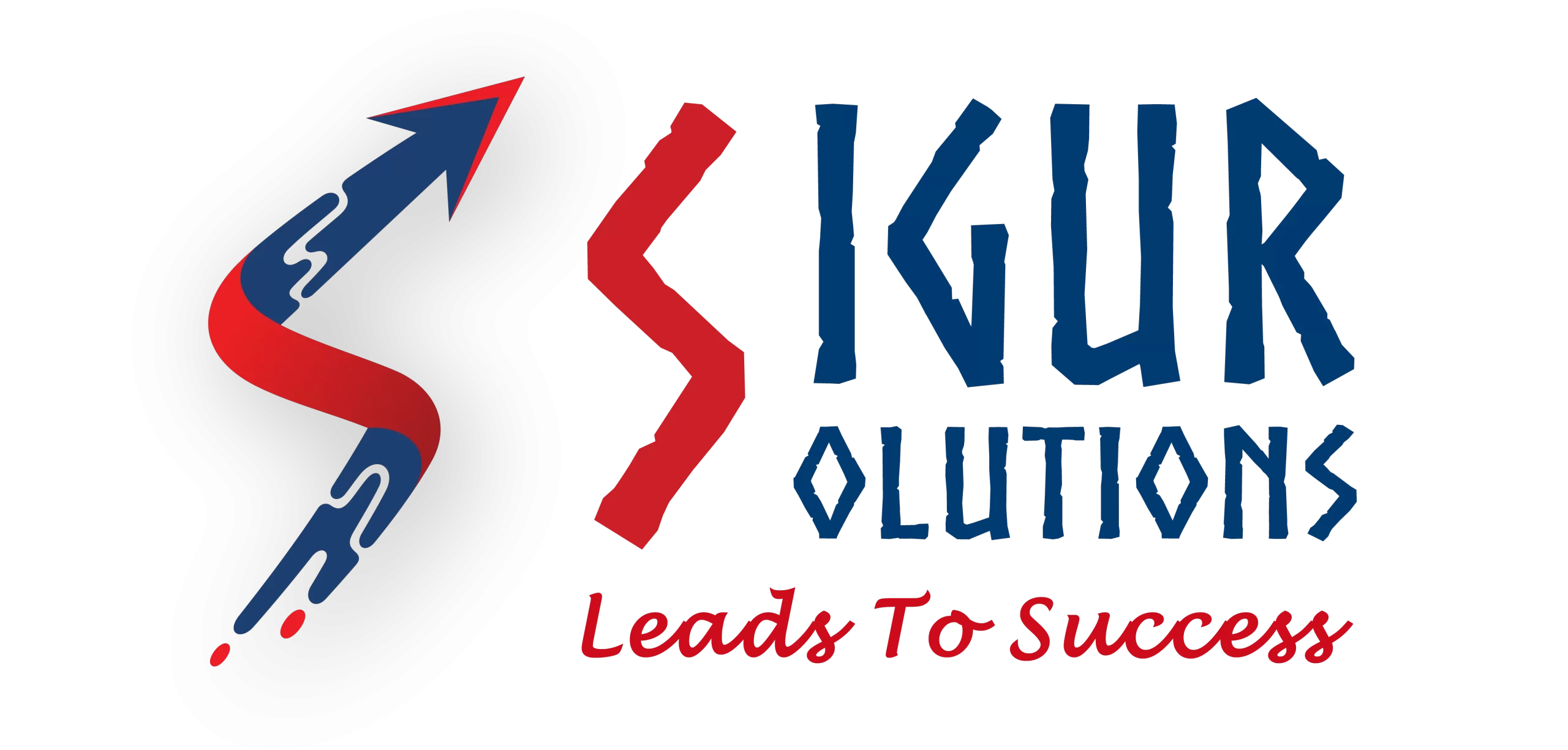
Why Flutter For Mobile App Development
Flutter is a popular open-source platform for making mobile apps. Google released it in 2017. Since it came out, its unique features and benefits have made it very popular among coders. One of the main reasons why Flutter for mobile app development is so famous is that it can be used to make high-quality mobile apps for both iOS and Android using the same software. This cuts the time and cost of development by a lot, making it a good choice for both companies and coders.
Flutter also has a lot of pre-built tools that make it easy to make custom user experiences that look good. It also has a feature called “hot reload,” which lets workers see the changes as they happen. This makes the development process much faster and more effective. The active community that has grown around Flutter is another important reason why it is so popular. This group has a lot of helpful tools, such as lessons, apps, and widgets, that can be used to improve the creation process.
Also, many big companies, such as Alibaba, Google, and Tencent, have started using Flutter. This has helped it become more famous and earned it more respect as a reliable development platform. Overall, Flutter’s success comes from its ability to ease and improve the process of making mobile apps, as well as its pre-built tools and “hot-reload” feature, its active community, and the fact that big companies use it.

What is Flutter, and Why Was It Developed?
Google made Flutter, which is a software development kit (SDK) for mobile apps. It was made to make mobile apps for Android and iOS, which are the two most popular systems for making apps.
As an open-source framework, Flutter is free and comes with all the tools, widgets, and libraries you need to make apps. This gives app makers a better experience and makes the process go faster.
Even though Flutter is a relatively new tool, Tencent and Alibaba have already started using it. Google also uses Flutter in their app called “Google Ads.”
So, Flutter has already shown how useful it is for making apps that look native on both Android and iOS while using the same code base. Since December 2018, Flutter has been on the market as a full offering.

Why Should Startups Choose Flutter For Their App Development?
Flutter is a powerful platform for making mobile apps that is becoming more popular with developers and companies. It is a Google-made open-source platform that enables developers to create excellent mobile apps that look great on both Android and iOS. In this piece, we’ll talk about why startups should build their apps with Flutter.
Faster Development Time
Flutter has a tool called “Hot Reload” that lets developers see the changes they make to the code as they are being made. This feature also makes it easier for developers to fix problems and bugs, which cuts down on the overall time it takes to make a programme. Startups can get their apps to market faster, giving them an edge over their rivals.
Cross-Platform Compatibility
One of the best things about Flutter is that it lets developers make apps for both Android and iOS at the same time without having to make different codebases for each device. This means that startups can reach more people with their apps without having to spend more time and money making multiple copies of the same app.
Excellent Performance
Flutter uses a dynamic programming style, which makes the user experience smoother and makes the app run faster. The framework also comes with tools that are made to work well on mobile devices. This makes the framework load faster and work better overall. Startups can give their app users a smooth experience, which will make customers happier and keep them coming back.
Customizable Widgets
Flutter has a huge set of widgets that can be changed and used to make beautiful user experiences that stand out from the rest. This lets companies make apps that are both unique and visually appealing and that match the look and feel of their brand. This helps people remember the brand and get involved with it.
Cost-Effective
Flutter is free to use because it is an open-source platform. This makes it a great choice for startups with small funds. The framework’s faster development time and ability to work on multiple platforms can also lower total development costs. This lets startups put their money and time into other parts of their business.
What is Cross-platform App Development?
The process of creating an application that can function on several operating systems, such as iOS, Android, Linux, etc., is known as cross-platform app development. Applications of this kind are not constrained to a particular platform.
In cross-platform app creation, developers only have to write code once, but it can be used more than once. This makes making cross-platform apps much easier and faster.
For cross-platform app creation, you need to use tools like JavaScript, HTML, and CSS that are not native to any one platform. It lets businesses make mobile apps for as many devices as possible at prices that are easy on the budget.
After deciding to make your app work on more than one platform, you have to choose between Flutter and React Native. But for many reasons, many professional mobile app developers also say that Flutter is the best choice for making cross-platform apps.

Flutter Vs React Native
| Features | Flutter | React |
|---|---|---|
| Programming Language | Google created the Dart language, which Flutter makes use of. Dart is an object-oriented language with a structure that is similar to that of Java or JavaScript. | React Native uses JavaScript and relies on the React library. |
| Performance | Flutter is known for its high-performance UI rendering. It uses a rendering engine called Skia to create its own widgets and doesn't rely on native components, resulting in fast and smooth animations. | React Native uses native components for rendering, which can sometimes result in performance limitations, especially for complex UI animations. |
| User Interface | Flutter provides a customizable and consistent UI across platforms. It has its own set of widgets and controls that are highly customizable, enabling developers to create unique and visually appealing interfaces. | React Native uses native UI components for each platform, providing a more platform-specific look and feel. However, this can also lead to inconsistencies between platforms. |
| Development Speed | Flutter's hot reload feature allows developers to see changes in the app immediately, making the development process faster and more efficient. | React Native also has a hot reloading feature, but it might not be as fast as Flutter's hot reload in some cases. |
| Community and Ecosystem | While Flutter's community is growing rapidly, it is relatively small compared to React Native. However, Flutter provides comprehensive documentation and offers many packages and plugins to extend its functionality. | React Native has a large and mature community, resulting in extensive community support, a wide range of third-party libraries, and a vibrant ecosystem. |
| Popularity and Adoption | Flutter has gained significant popularity, especially among developers who prefer a single codebase for multiple platforms. Companies like Google, Alibaba, and Tencent use it. | React Native has been around longer and has a wider adoption, with companies like Facebook, Instagram, and Airbnb using it for their mobile apps. |
Flutter Mobile App Startup: Pros and Cons
Pros of starting a mobile app startup with Flutter:
Cross-platform Development: With Flutter, you can write one set of code that can be used to make apps for both iOS and Android. When compared to making different native apps for each platform, this saves a lot of time and money.
Fast Development: With a hot restart, developers can see changes right away, which speeds up the development process. It makes it easy to try things out quickly, which speeds up app creation and changes.
High Performance: The design of Flutter includes a high-performance drawing engine called Skia. This makes it possible for movements and UI rendering to happen quickly and smoothly. This can lead to a better experience for app users and better app speed.
Customizable UI: Flutter has a large number of built-in UI widgets that can be changed in a lot of ways to make interfaces that are unique and look good. This lets you create a beautiful user experience that looks the same on all systems.
Strong Developer Productivity: Flutter is easy for developers to learn and use because it is simple and easy to use. It has a lot of literature, lessons, and community support, all of which help developers work faster and better.
Growing Community and Ecosystem: Flutter is getting more and more famous, and the number of people who use it is growing quickly. In the Flutter environment, there are many third-party apps and tools that can help you improve the way your app works.
Cons of starting a mobile app startup with Flutter:
Limited Native Capabilities: While Flutter provides access to numerous native device features and APIs, certain platform-specific functionalities or libraries might not be directly accessible. In such situations, it may be necessary to write platform-specific code or rely on third-party modules.
App Size: Flutter applications are larger in file size than native apps because they include the Flutter engine and framework. Especially for applications that must be downloaded over cellular networks, this can be a concern.
Immature Libraries: Even though the Flutter ecosystem is expanding, it may lack the maturity and library depth of other frameworks such as React Native. In some instances, you may need to develop specific features from the beginning or rely on community-contributed packages.
Learning Curve: If your team of developers is unfamiliar with Dart or Flutter, there will be a learning curve. Developers may require some time to become proficient with Flutter and completely leverage its capabilities.
Limited Platform Integration: While Flutter offers excellent cross-platform capabilities, there may be situations in which you need to integrate deeply with particular platform features or APIs. In such situations, it may be necessary to write platform-specific code or use extensions to bridge the divide.
Overall, using Flutter to launch a mobile app firm can provide benefits such as cross-platform development, rapid development cycles, high performance, and a customizable user interface. However, you should also consider the potential challenges and limitations associated with Flutter, such as its limited native capabilities, app size, and steep learning curve. Prior to making a decision, you should evaluate the specific project requirements and the team’s skills.
Flutter Mobile App Startup: Pros And Cons
Cross-platform Development: With Flutter, you can write one set of code that can be used to make apps for both iOS and Android. When compared to making different native apps for each platform, this saves a lot of time and money.
Fast Development: With a hot restart, developers can see changes right away, which speeds up the development process. It makes it easy to try things out quickly, which speeds up app creation and changes.
High Performance: The design of Flutter includes a high-performance drawing engine called Skia. This makes it possible for movements and UI rendering to happen quickly and smoothly. This can lead to a better experience for app users and better app speed.
Customizable UI: Flutter has a large number of built-in UI widgets that can be changed in a lot of ways to make interfaces that are unique and look good. This lets you create a beautiful user experience that looks the same on all systems.
Strong Developer Productivity: Flutter is easy for developers to learn and use because it is simple and easy to use. It has a lot of literature, lessons, and community support, all of which help developers work faster and better.
Growing Community and Ecosystem: Flutter is getting more and more famous, and the number of people who use it is growing quickly. In the Flutter environment, there are many third-party apps and tools that can help you improve the way your app works.

Cons Of Starting A Mobile App Startup With Flutter:

Limited Native Capabilities: While Flutter provides access to numerous native device features and APIs, certain platform-specific functionalities or libraries might not be directly accessible. In such situations, it may be necessary to write platform-specific code or rely on third-party modules.
App Size: Flutter applications are larger in file size than native apps because they include the Flutter engine and framework. Especially for applications that must be downloaded over cellular networks, this can be a concern.
Immature Libraries: Even though the Flutter ecosystem is expanding, it may lack the maturity and library depth of other frameworks such as React Native. In some instances, you may need to develop specific features from the beginning or rely on community-contributed packages.
Learning Curve: If your team of developers is unfamiliar with Dart or Flutter, there will be a learning curve. Developers may require some time to become proficient with Flutter and completely leverage its capabilities.
Limited Platform Integration: While Flutter offers excellent cross-platform capabilities, there may be situations in which you need to integrate deeply with particular platform features or APIs. In such situations, it may be necessary to write platform-specific code or use extensions to bridge the divide.
verall, using Flutter to launch a mobile app firm can provide benefits such as cross-platform development, rapid development cycles, high performance, and a customizable user interface. However, you should also consider the potential challenges and limitations associated with Flutter, such as its limited native capabilities, app size, and steep learning curve. Prior to making a decision, you should evaluate the specific project requirements and the team’s skills.
How Much Does It Cost To Use Flutter To Make An App?
The cost of developing an app with Flutter can vary significantly based on factors such as the app’s complexity, the number of features, the design requirements, and the rates of the development team. Here are some expense considerations:
Development Team: The cost of employing developers or a development firm will vary based on their location, experience, and Flutter expertise. Rates can vary substantially between regions and influence the total cost of development.
App complexity: The quantity of screens, user flows, and features in your application will affect the development effort required. Complex applications with sophisticated features will typically require more time and resources, resulting in increased costs.
Design and User Interface: Design is a crucial component of app development. Due to the additional design work required for custom UI/UX design, graphics, animations, and branding, the price may increase.
Backend Development: If your application requires a server-side backend or API integration, the development cost will encompass backend development, database configuration, and API integration.
Third-Party Services: Integration of third-party services, such as payment gateways, text notifications, analytics, and social media platforms, may incur additional fees, such as licencing fees or API usage fees.
Testing and Quality Assurance: Testing and quality assurance are essential for developing a bug-free and stable application. Included in the price may be manual and automated testing, device testing, and problem resolution.
Maintenance and Updates: Following the initial development, there will be ongoing maintenance and updates, including issue adjustments, security updates, and OS version compatibility. These expenses should be considered for the long-term viability of the app.
To get exact cost figures, you need to talk to development companies or freelancers about your app’s unique needs. They will look at the size, features, and design needs of your job to give you a full price that fits your needs.
Final Thought
In conclusion, Flutter is the best choice for your mobile app startup because it has great features, is flexible, and has a large group of developers. It gives you a full creation tool that makes it easy to make high-quality apps that work on different platforms. By using a single script, Flutter saves you time and money because you only have to build and manage one app that works well on both iOS and Android.
The fast development processes and “hot reload” feature of Flutter make it easy for developers to make changes quickly and efficiently, which shortens the time it takes to get an app to market. It has a lot of pre-made tools and customizable UI components that let you make user interfaces that look good and are fun to use. This improves the overall user experience.
After looking at Sigur Solutions, it’s clear that Flutter is the best choice for your mobile app development. It lets you make beautiful, high-performance apps in less time and for less money. It also has an active developer community. By using Flutter, you can put your company in a good position to do well in the tough mobile app market.
Our Recent Blogs

Real Estate
Why Real Estate Agents Need SEO
Why Real estate agents need SEO What is Real Estate SEO?…

SEO
Why Your Wealth Management Company Needs SEO
Why Should Weatlh Management Companies Focus on SEO?…

Video Marketing
How video marketing can benefit your business
How video marketing can benefit your business What is Video Marketing?…




